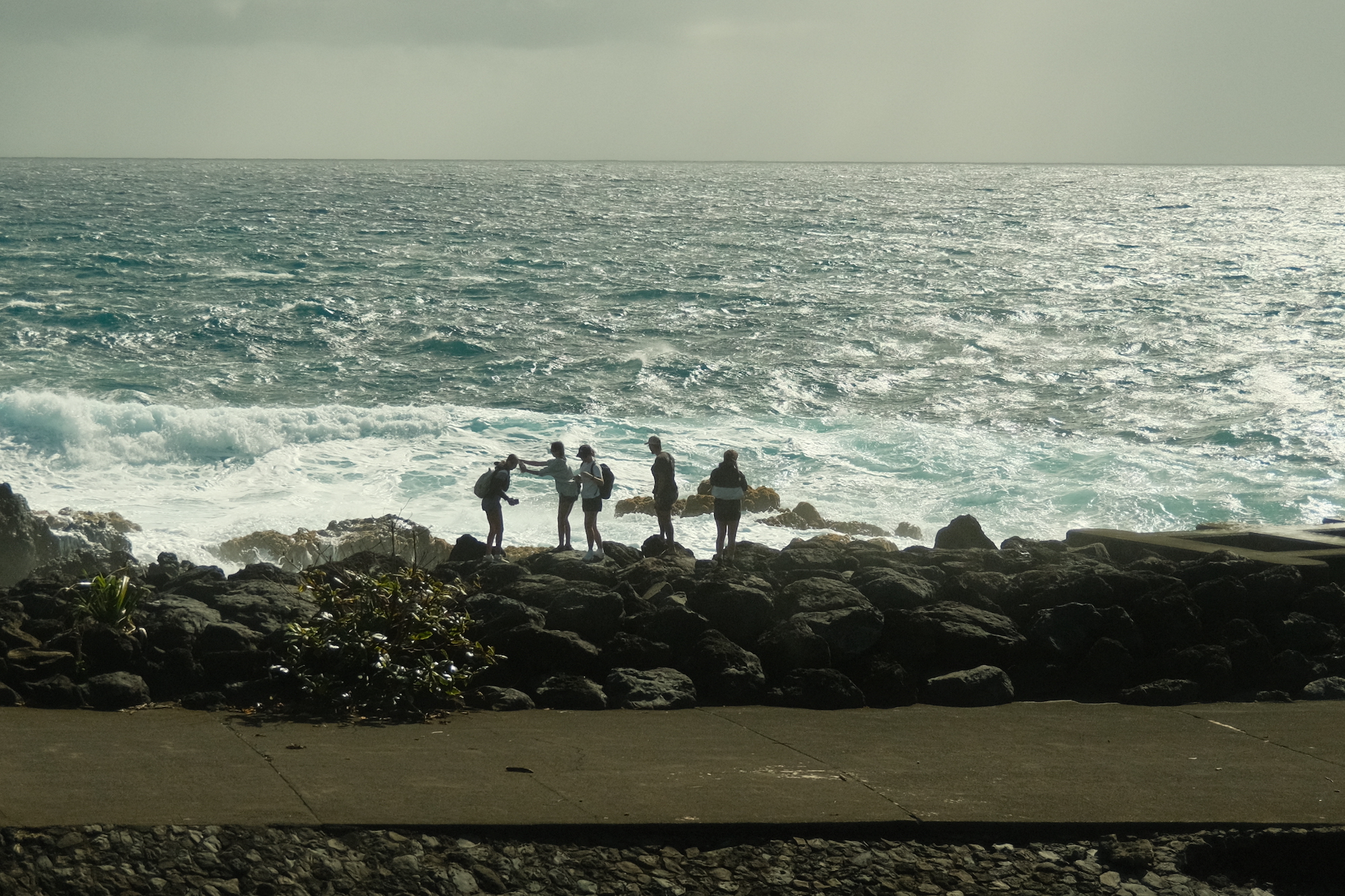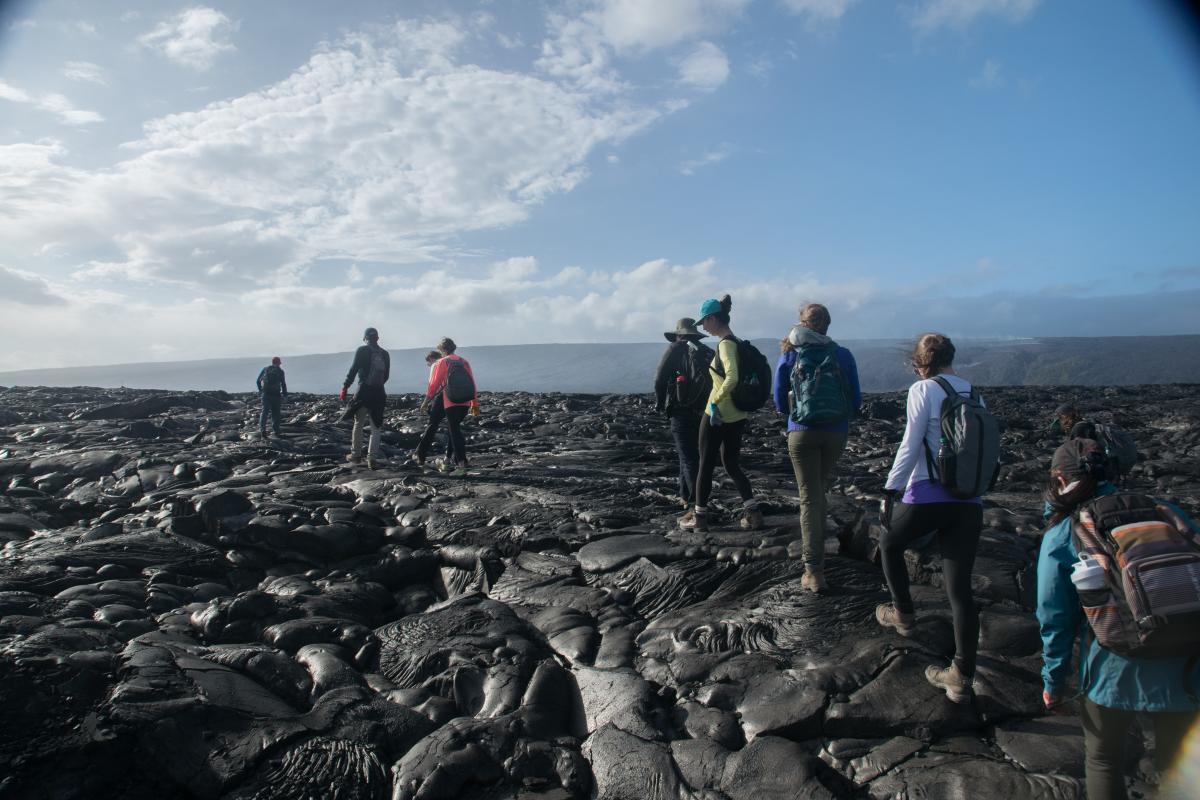
The next offering of ISCI 361 will be in Bermuda in February 2026 (2025W term 2). Click here for the 2023 trip recap!
Course Description
As argued in ISCI 360, to understand sustainability, we also need to understand unsustainability. We have deliberately adopted systems thinking as the approach for ISCI 361, using the logic that any region of the world needs to be understood as an integrated system before we can understand what will happen when that system is perturbed. Systems thinking as an approach to problem-solving argues that the component parts of a system can best be understood in the context of relationships with each other and with other systems, rather than in isolation. A scientific approach to examining the world that embraces systems thinking therefore demands that we consider landscapes, regions or whole continents as systems. In these systems, elements such as land, air, water, human societies, plants, and animals, interact in ways that influence the likelihood that the system will survive or perish.

In 2024W term 2 ISCI 361 will visit and examine the Big Island, Hawaii as a case study region of the world. The course consists of 3 parts (subject to small changes):
1. Group research, project and presentation before the trip + required readings (about 3-4 class meetings -date and time will be determined based on schedules of students accepted into the course).
2. We will spend reading week in Hawaii, visiting a number of academic centres, national parks and sites of interest. We will consider input from multiple scientific (and some social science) disciplines to answer a range of questions about the Hawaiian system and its sustainability. How does the underlying geology of the Big Island affect its water systems and agriculture? What advantage do different sources of energy offer this small island? To what degree are these energy systems - sustainable? How do the climate and geology of the Big Island affect its ecosystems and agriculture? What special advantages and challenges are unique to this area of the earth system?
Some of the topics/activities: volcanism, active lava flows, green sand beach, black sand beach, sea turtles, whales, looking at the effects of tsunamis, snorkeling and reef geology, champagne pools, tropical ecosystem in Polulu valley, Mauna Kea Observatory, Vog, energy - geothermal, solar, wind farms, organic farming...and more.
3. Final Project.

Course goals and learning objectives
By participating in ISCI 361 you will:
- Gain hands-on experience in applying principles of systems thinking to scientific investigation of a selected region of the world.
- Gain field research experience through investigation of a local sustainability challenge as a team research project and presentation your findings to the group.
- Pursue selected Hawaiian sustainability topics of your own choice and compile notes on your observations, further research and learning in a course logbook.
Eligibility
This course is open to students with third-year or higher standing in the Faculty of Science. Students should have completed ISCI 360, Systems Approaches to Regional Sustainability (taking place in Term 2 of each academic year) or ISCI 361 (in Iceland).
While the course is suitable for third-to fourth-year students from a variety of majors and science disciplines, preference will be given to students registered in Integrated Sciences.
You will be selected based on personal and intellectual maturity and a demonstrated commitment to the learning theme and goals of the program
How to apply: The applications for Feb 2025 have now closed. Applications for Feb 2026 should be available on the Go Global Group study website September 2025.
This group-study program will consist of approximately 16 student participants.
Course Fees
Approximately $3000 - 3200 plus 3-credit tuition and flight and most meals.
Accommodation: We will be staying in a house on a large property on the Hilo side of the Island.
Link to Go Global website and the Application form
Registration Details
Offered: 2024W T2 (reading week)
Pre-requisites:
ISCI core course: YES
UBC Schedule: ISCI 361